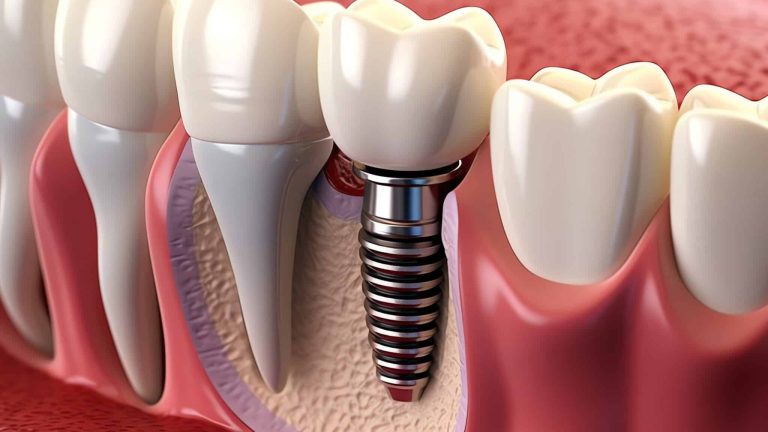Introduction
Did you know that your genetics can significantly influence your oral health? Although daily habits such as brushing and flossing are essential, your genes also play a crucial role in how your teeth and gums respond to everyday challenges. From a predisposition to cavities to the shape of your smile, your genetic inheritance can determine a great deal about your dental health. In this article, we will explore how genetics affects your oral health, which conditions can be inherited, and how to manage the associated risks.
The Influence of Genetics on Oral Health
Genetics affects various aspects of your oral health, including the structure of your teeth, the quality of your enamel, and your susceptibility to diseases such as cavities and periodontitis. While environmental factors and daily habits are also decisive, your genes can predispose you to certain issues that require personalized attention.
Aspects Determined by Genetics:
- Shape and Size of the Teeth:
- Your genes determine whether you have large, small, crowded teeth or wide spaces between them.
- They also influence the shape of your bite and issues such as overbite or crossbite.
- Enamel Quality:
- The hardness and resistance of your enamel can be related to your genetic inheritance.
- Weaker enamel makes you more susceptible to cavities and dental wear.
- Gum Health:
- Some people have a genetic predisposition to periodontal disease, even if they maintain good oral hygiene habits.
- Saliva Production:
- Your saliva levels and its chemical composition are also influenced by your genes. Saliva is essential for neutralizing acids and protecting your teeth.
Common Inherited Oral Conditions
1. Dental Cavities
- Although cavities are primarily caused by bacteria, genetics can influence factors such as:
- The composition of your saliva.
- The strength of your enamel.
- The shape of your teeth, which can make cleaning more difficult.
2. Periodontal Disease
- Research has shown that up to 30% of the population may have a genetic predisposition to gum disease.
- Genetic factors can increase inflammation and susceptibility to infections.
3. Malocclusion
- Dental alignment issues, such as crowded teeth or overbites, are often hereditary.
- These issues may require orthodontic treatments to correct.
4. Impacted Teeth
- A lack of space in the jaw, which can lead to impacted teeth (such as wisdom teeth), is also related to genetics.
5. Dental Sensitivity
- Some people inherit teeth with thinner enamel or exposed roots, which can cause sensitivity to heat, cold, or sweets.
6. Dental Anomalies
- Conditions such as hypodontia (missing teeth) or supernumerary teeth (extra teeth) have a strong genetic component.
Genetics and Systemic Diseases Related to Oral Health
Some genetic diseases that affect the body also have an impact on oral health. For example:
- Diabetes:
- People with a genetic predisposition to diabetes have a higher risk of periodontal disease due to inflammation and difficulty controlling infections.
- Osteoporosis:
- This hereditary condition can weaken the bones that support your teeth, increasing the risk of tooth loss.
- Down Syndrome:
- People with this syndrome often have specific dental problems, such as open bites and a higher susceptibility to gum disease.
What Can You Do If You Have Genetic Risk Factors?
Although you cannot change your genes, there are many ways to minimize the impact of genetics on your oral health:
- Maintain a Strict Oral Hygiene Routine
- Brush your teeth at least twice a day with a soft-bristled toothbrush and floss daily.
- Consider using fluoride mouthwashes to strengthen your enamel.
- Visit Your Dentist Regularly
- Regular check-ups allow problems to be detected before they become major complications.
- A dentist can identify early signs of genetically related issues.
- Adopt a Healthy Diet
- Limit your intake of sugars and acidic foods that can damage your enamel.
- Consume foods rich in calcium and vitamin D to strengthen your teeth and bones.
- Consider Preventive Treatments
- Dental sealant applications to protect molars.
- Fluoride therapies to reinforce enamel.
- Inform Your Dentist About Your Family History
- Knowing your family’s dental issues can help your dentist tailor your care.
The Science Behind Genetics and Oral Health
Genetic research has advanced significantly in recent decades, enabling scientists to identify specific genes related to oral health. For example:
- The AMELX Gene:
- Associated with the formation of dental enamel. Mutations in this gene can result in weak enamel.
- The IL-1 Gene:
- Related to inflammation. People with certain variants of this gene have a higher risk of periodontal disease.
- The MMP20 Gene:
- Responsible for enamel mineralization. Mutations can lead to teeth that are more prone to cavities.
What Does the Future Hold?
Genetic dentistry is an emerging field that promises to revolutionize dental care. In the future, we might see:
- Personalized Genetic Testing
- Dentists could use genetic tests to identify your risk for dental problems and develop personalized treatment plans.
- Gene Therapies
- Ongoing research aims to repair defective genes to prevent issues such as cavities and periodontal disease.
- Regenerative Medicine
- The use of stem cells to regenerate teeth and damaged tissues.
Real-Life Cases: Genetics in Action
At Clínicas La Guardia, we treated a patient with a family history of periodontal disease. Despite maintaining good hygiene habits, his genetics predisposed him to gum problems. Thanks to frequent cleanings, fluoride therapies, and a personalized care plan, we were able to control the disease and preserve his smile.
Conclusion
Genetics plays a crucial role in oral health, but it does not entirely define your destiny. With a preventive approach and personalized dental care, you can overcome genetic challenges and maintain a healthy smile. At Clínicas La Guardia, we are committed to providing you with the best care, tailored to your unique needs. Schedule your appointment today and take control of your oral health!




